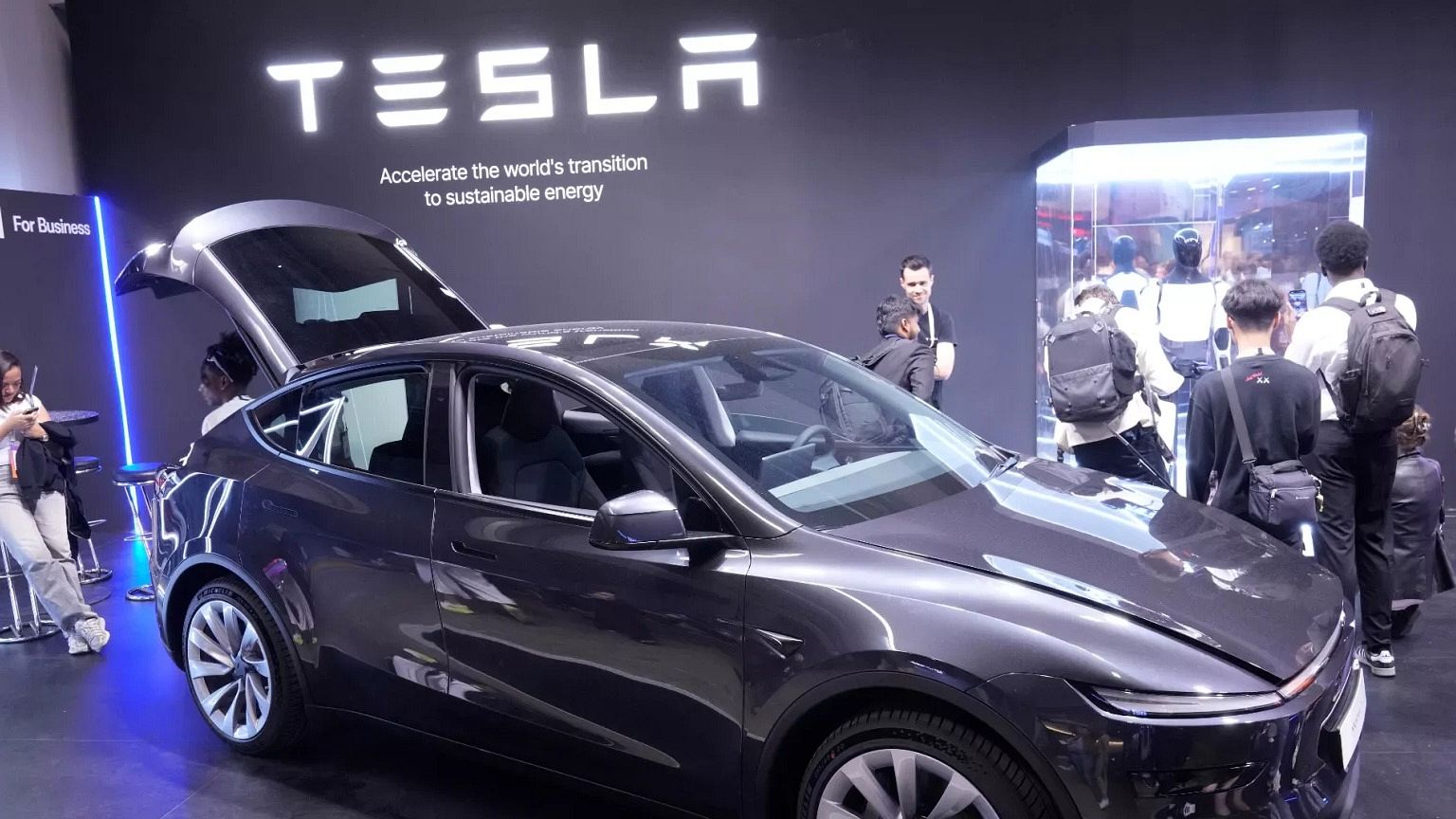
In a stunning legal twist that blends high-tech innovation with deep political unease, a group of Tesla drivers in France is taking Elon Musk and his electric vehicle company to court, claiming that Musk’s increasingly far-right affiliations have transformed their cars from eco-conscious symbols of the future into unintended mascots of political extremism.
According to reports from France 24, the plaintiffs are seeking to terminate their lease contracts and demand full reimbursement of all associated legal costs. Behind this unprecedented lawsuit lies a mounting frustration shared by environmentally conscious European consumers who now feel betrayed by the very brand they once proudly supported.
The lawsuit, spearheaded by the law firm GKA, paints a damning portrait of Musk’s political conduct and its cultural consequences. In a public statement, GKA declared that “because of Elon Musk’s actions… Tesla branded vehicles have become strong political symbols and now appear to be veritable extreme-right ‘totems,’” an outcome that has left many of their clients disillusioned and, in their words, “prevented from fully enjoying their car.”

For individuals who purchased Teslas with the simple desire to own an innovative, sustainable vehicle, the transformation of the brand into a perceived emblem of far-right ideology has become intolerable. Their argument hinges on the legal principle of trouble de jouissance, or loss of enjoyment, a clause in French civil law that allows consumers to claim damages if a product’s use has been severely compromised through no fault of their own.
This civil action comes amid a growing backlash against Musk’s controversial political posturing, which critics argue has reached dangerous new extremes. Earlier this year, the billionaire CEO stunned global audiences by making two separate Nazi-style salutes during an election event, acts that were widely condemned and sparked outrage across social and political spectrums.
More recently, Musk has appeared via video link at both German and Italian far-right rallies, associating his personal brand—and by extension Tesla—with a rising tide of nationalist and anti-democratic rhetoric. The cumulative effect of these appearances has been to embed Tesla in an ideological battleground, deeply polarizing a product once celebrated for environmental stewardship and innovation.

For many in Europe, where political sensitivities around fascism and authoritarianism run especially high, Musk’s alignment with the far right is not just a public relations disaster—it’s a moral offense. In countries like France and Germany, where memories of World War II atrocities are deeply ingrained in the national psyche, Musk’s flirtation with such symbolism is more than provocative; it’s unforgivable.
For Tesla owners who find themselves associated, however unintentionally, with such imagery, the fallout is both personal and public. Some have resorted to putting bumper stickers on their cars that read, “I bought this before Elon went crazy,” a wry yet telling sign of discontent that reflects just how profoundly consumer sentiment has shifted.
Tesla’s collapse in the European market reflects this cultural rejection. In just the last month, new Tesla registrations across Europe plummeted by a staggering 53 percent. This decline isn't merely a business blip; it’s a referendum on Elon Musk himself.
Consumers are abandoning the brand not because of its technology, which remains cutting-edge, but because of what Musk now represents. From Berlin to Paris, car buyers are recoiling from Tesla’s new identity, unwilling to be involuntary participants in what they perceive as a political crusade gone awry.
More troubling for Tesla owners is the dramatic erosion of resale values. Used Teslas, once considered high-demand assets in the secondhand EV market, are now languishing on dealer lots. The stigma attached to the brand has effectively destroyed resale liquidity, leaving many owners trapped with vehicles they no longer want but cannot reasonably sell.
For French plaintiffs, this represents a double injury: not only are they enduring social and political embarrassment, but they’re also bearing real financial losses. One of their lawyers, Patrick Klugman, put it bluntly in a statement to France 24: “The situation is both unexpected and impossible for French Tesla owners.
Musk’s political positions have interrupted enjoyment of their cars. We believe that Mr Musk owes these buyers the peaceful possession of the thing sold.”
This lawsuit is emblematic of a deeper cultural reckoning taking place around tech billionaires and their outsized influence on public discourse. Musk, once lauded as a visionary and innovator, is now increasingly seen as a polarizing agent whose personal beliefs bleed into every corner of his companies.
What was once a badge of environmental progressivism has become, in the eyes of many, a rolling billboard for Musk’s personal ideology—a transformation that has alienated a large portion of Tesla’s original customer base. In France, where political affiliations carry immense weight in public life, that transformation is not being taken lightly.

It also opens up a new legal frontier: can a product’s perceived political symbolism constitute a breach of contract or consumer expectation? If courts rule in favor of the plaintiffs, it could set a precedent not only in France but across other European markets.
More broadly, it signals a fundamental shift in the consumer-brand relationship. No longer can CEOs assume that their personal views exist in a vacuum separate from their products. In an age where political identity and consumer choice are increasingly intertwined, Musk’s actions are being weighed not only in terms of innovation but morality.
Complicating matters further is the fact that Tesla itself has not issued any formal retraction or clarification regarding Musk’s controversial political behavior. While some companies distance themselves from executive conduct that strays into scandalous territory, Tesla has remained tightly coupled with its CEO’s personal image.
In effect, Tesla is Musk, and Musk is Tesla—an inseparability that is now costing the company dearly. Analysts point to declining stock prices, softening global sales, and increasing reputational damage as signs that the brand may not recover easily, if at all.
Meanwhile, grassroots protest movements have begun to form around the world, targeting Tesla’s showrooms and events. In Paris, activists have held flash protests outside Tesla dealerships, calling attention to Musk’s behavior and urging consumers to boycott the brand.
Online, social media platforms are awash with videos of Tesla owners defacing or ditching their vehicles in protest. What was once a silent, humming symbol of environmental hope is now being loudly rejected.
The case brought by French Tesla drivers may be just the beginning. If the courts affirm that brand symbolism, especially when tied to controversial political behavior, can nullify consumer contracts, the floodgates may open for similar lawsuits in Germany, Italy, Spain, and beyond.
Tesla, a company that once redefined the automotive industry, now finds itself in the crosshairs of a legal and cultural revolt triggered not by mechanical failure or design flaws—but by the words and actions of its CEO.
As of now, Elon Musk has not issued any public statement in response to the lawsuit. But the silence may speak louder than words. In France, where consumers are accustomed to holding corporations accountable, the battle over Tesla's image has just begun.
And for Musk, who once claimed to be engineering the future, it may be a glimpse of the reckoning that lies ahead.



-1749483799-q80.webp)
-1749482411-q80.webp)
-1749482120-q80.webp)